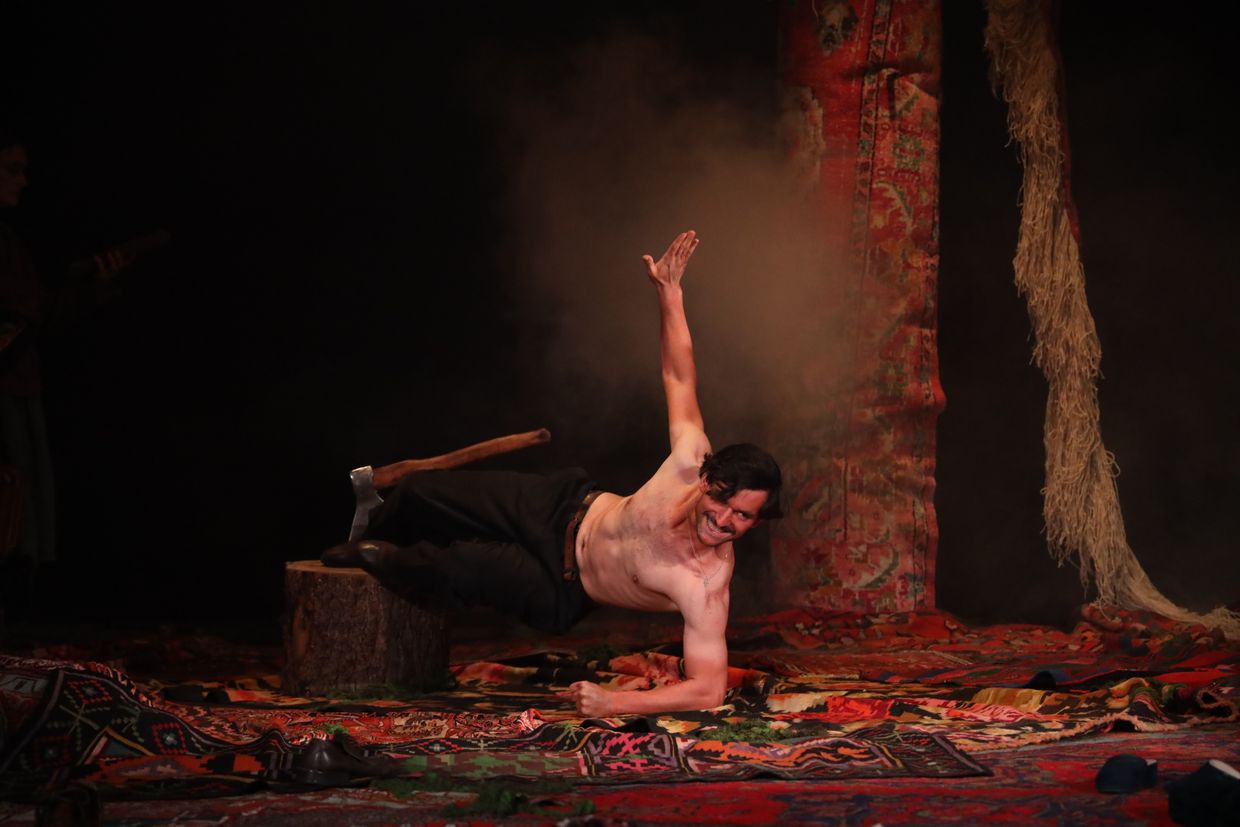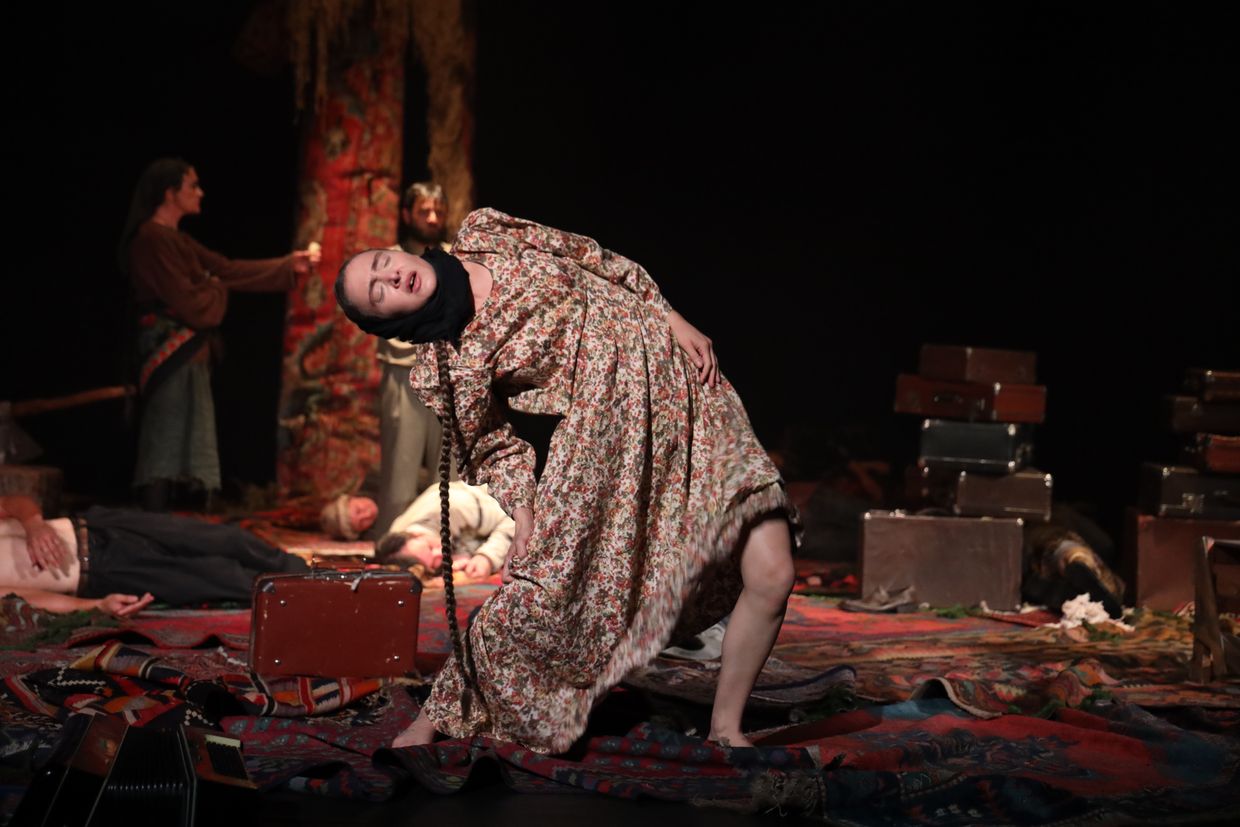
2.5/5★
Symbolic but static, Haide misframes universal issues, with rushed delivery and dated ideas that dilute its impact on modern audiences.
Haide is an ambitious and visually poetic performance that seeks to turn women’s unspoken pain into a stage manifesto. With text by Ketevan Samkharadze and direction by Tato Geliashvili and Tata Tavdishvili, the play blends monologues, movement, and symbolism in an attempt to create a ritual-like atmosphere where silence and speech collide.
The plot centres on a woman ostracised by her village as an outcast for her assertiveness and for not having a male breadwinner in the house. To earn a living, she takes on responsibilities traditionally considered too physical for women, all while raising two daughters on her own. Both daughters, however, become victims of domestic abuse — later resulting in femicide — and sexual violence, enduring the oppressive expectations and traditional perspectives reinforced by those around them.
Besides the focus on this household, the narrative also touches on masculinity, highlighting men’s inability to express their feelings and how gender norms force them to swallow all their pain and tears. In addition to emotional unavailability, we see how men are also pushed to meet expectations of being sexually promiscuous in order to prove their social currency — this is especially tragic to see unfolding during the symbolic rape scene.

Overall, the story explores generational struggles, gender-based oppression, and the social pressures shaping people’s lives.
There are undeniably powerful moments throughout the performance: the culminating monologue of a village wife resonates as a voice for countless silenced women, and the striking imagery of women loosening their hair in ritual defiance carries weight. However, the performance struggles to hold its own. The staging is often static to the point of monotony, and while the metaphoric visuals (roots, roses, deer, and ritual tableaux) are rich in intent, they risk drowning out the urgency of the human stories. The actors, too, are constrained — delivering speeches at such speed and with such poor diction that context is often lost. What should have been raw and intimate at times feels distant and inaccessible.
A deeper issue lies in the framing: the play seems to portray gender-based violence and patriarchal oppression as almost exclusive to certain ethnic minority communities, while in reality these issues are pervasive throughout Georgia. This choice risks narrowing the universality of the message and reinforcing divisions rather than speaking to shared struggles. Compounding this, the ‘regional’ accent used by the actors was so far from authentic that it distracted from, rather than supported, the storytelling.

Thematically, Haide feels dated. What might have been considered an innovative and moving approach 20 years ago now reads as a poor and simplified depiction of gender-based violence, rooted in preconceived notions about women and their struggles rather than engaging with the complex realities modern-day Georgia faces. Instead of offering fresh insight or resonance, the performance feels more like a staged essay from another era, heavy on symbols but light on contemporary relevance.
Ultimately, Haide deserves credit for raising difficult questions about tradition, patriarchy, and silence. But its execution — between static staging, inaccessible delivery, and outdated framing — undercuts its potential. What could have been a searing reflection on women’s lives today lands instead as an uneven, overly stylised, and disappointingly narrow depiction of a much broader struggle.
Haide was produced by the Marneuli Cultural Center and premiered on 1 July at the Kote Marjanishvili State Academic Drama Theatre. It was recently staged as part of the 2025 Tbilisi International Festival of Theatre.










